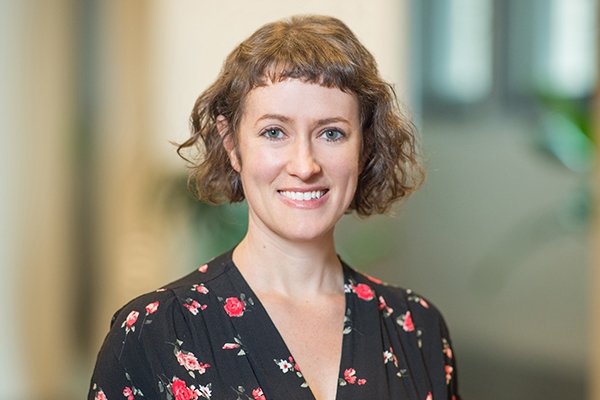
Maggie P. Fay conducts mixed methods research on STEM education, dual enrollment programs, college readiness, developmental mathematics, reforms to developmental education, and the implementation of guided pathways reforms. In general, Fay is interested in higher education reforms designed to improve access to and success in higher education, and using research to elevate the student voice and student perceptions of challenges and reforms.
Fay holds a BA in international relations and Spanish from the University of Minnesota at Minneapolis, an MA in higher education from New York University (NYU), and a Ph.D. in sociology from the City University of New York (CUNY) Graduate Center. Fay’s mixed-methods dissertation research focused on students’ experiences in developmental math courses, the relationship between gender and performance in these courses, and reforms to developmental mathematics. Prior to joining CCRC, Fay worked as a research assistant for NYU’s Diversity Taskforce and as a research analyst for the Research Alliance for New York City Schools, where she contributed to a qualitative study of small high schools of choice in New York City.
